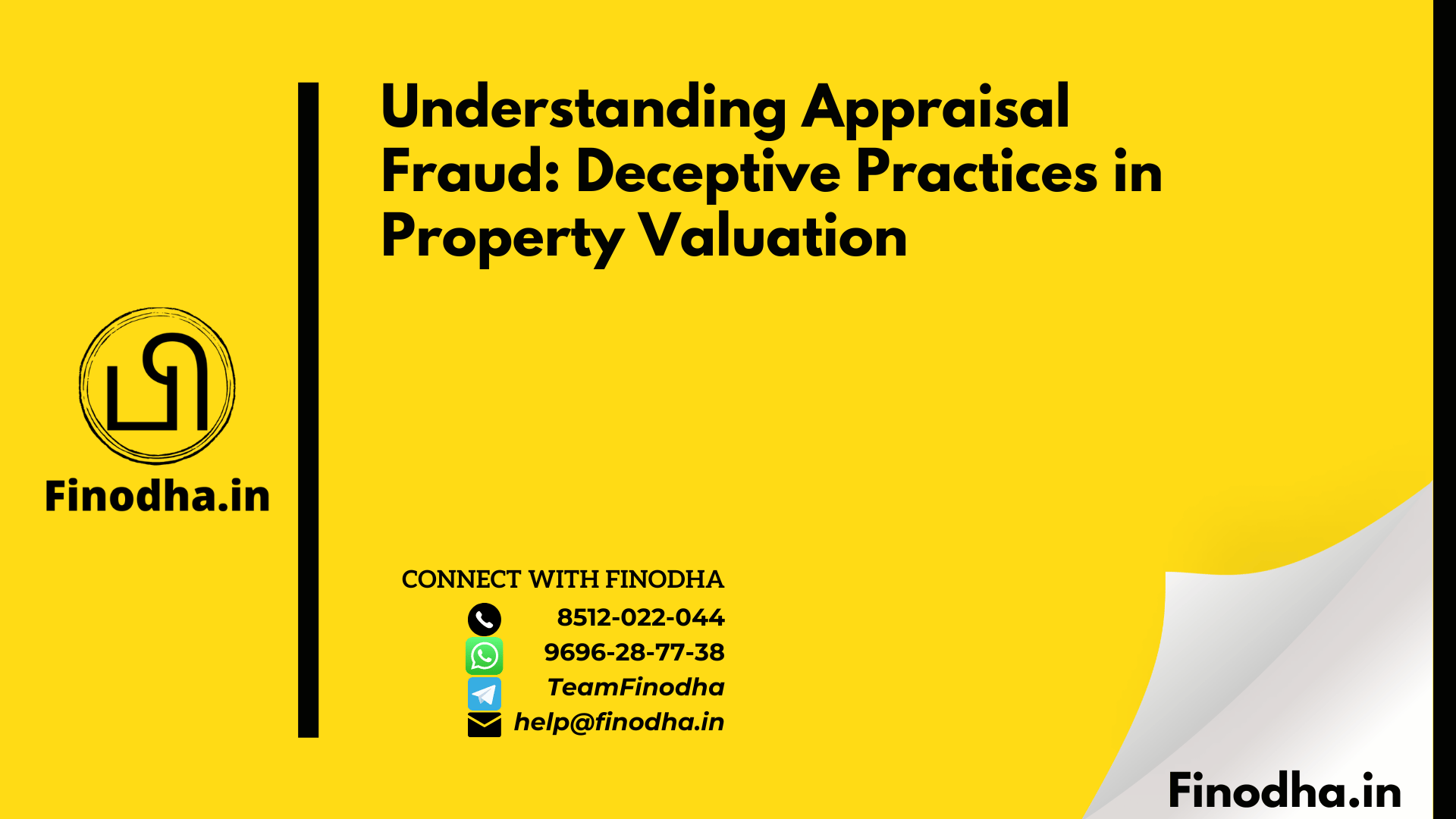Important keywords: appraisal fraud, mortgage fraud, property valuation, inflated appraisals, real estate transactions, prevention measures, ethical practices, risk assessment.
Headings:
- Introduction to Appraisal Fraud
- How Appraisal Fraud Works
- Common Motives for Appraisal Fraud
- The Role of Property Appraisals
- Consequences of Appraisal Fraud
- Preventing Appraisal Fraud
- Example in the Indian Context
- Key Takeaways
- Conclusion
Sub-headings, short paragraphs, and bullets:
Introduction to Appraisal Fraud:
- Appraisal fraud is a form of mortgage fraud that involves deliberately inflating or deflating the value of a property.
- Fraudulent appraisal practices can occur when an appraiser, homeowner, seller, or buyer manipulates the property’s value.
How Appraisal Fraud Works:
- Appraisal fraud occurs when an appraiser, homeowner, seller, or buyer dishonestly alters the value of a property.
- The inflated or deflated value is used to benefit one party in a real estate transaction, such as obtaining a higher selling price or securing favorable financing.
Common Motives for Appraisal Fraud:
- Sellers may engage in appraisal fraud to sell their property at an inflated price, maximizing their profits.
- Buyers may manipulate appraisals to obtain lower mortgage amounts and secure financing more easily.
- Homeowners may commit appraisal fraud to qualify for refinancing or obtain a home equity loan.
The Role of Property Appraisals:
- Property appraisals are conducted by qualified appraisers to determine the fair market value of a property.
- Appraisers inspect the property to arrive at a reasonable selling price based on market conditions and property characteristics.
- Appraisals are important for mortgage loans, tax assessment, and risk assessment by lenders.
Consequences of Appraisal Fraud:
- Appraisal fraud can lead to financial losses for lenders, buyers, and investors.
- Lenders may refuse financing or demand a lower home price if the appraisal is deemed excessive.
- Buyers may be required to pay the difference between the inflated appraisal and the lender’s valuation.
Preventing Appraisal Fraud:
- Lenders use preferred appraisers and implement safeguards to prevent appraisal fraud.
- Stricter regulations and ethical standards are enforced to ensure accurate property valuations.
- Appraisal management companies are utilized to maintain independence and objectivity in the appraisal process.
Example:
- Consider a scenario where a seller conspires with an appraiser to inflate the value of a property.
- The seller lists the property at an inflated price, and the appraiser provides a fraudulent appraisal supporting the inflated value.
- A buyer agrees to purchase the property based on the inflated appraisal, but the lender refuses to finance the inflated amount.
Key Takeaways:
- Appraisal fraud involves dishonestly manipulating the value of a property for personal gain.
- Inflated appraisals can lead to financial losses and disrupt real estate transactions.
- Stricter regulations and measures are in place to prevent and detect appraisal fraud.
Conclusion:
- Appraisal fraud poses a significant risk to the integrity of property valuations and real estate transactions.
- By promoting transparency, ethical practices, and strict oversight, the industry can minimize the occurrence of appraisal fraud.
- Vigilance from lenders, appraisers, and regulators is crucial to maintain trust and protect the interests of all parties involved.
Capital gains (21) CGST (280) Chapter VI-A (15) e-Compliance Portal (21) E-Verify (20) economic growth (21) F&O Trading (29) F.No.354/117/2017-TRU (23) F. No. CBIC-20001/4/2024-GST (15) Financial planning (15) financial stability (16) GST (1458) IGST (223) Income from House Property (17) Income Heads (16) Income Source (14) Income tax (111) Income Tax Account (15) Income Tax Filing (20) Indian context (22) Indian investors (16) ITR-3 (19) ITR Form (20) P&L Statement (24) PAN (13) Risk Management (20) Salary Income (19) Section 7(1) UTGST Act 2017 (14) Section 8(1) UTGST Act 2017 (26) section 9 (18) section 10 (28) section 15 (13) section 25 (17) section 39 (24) section 49 (16) section 50 (16) section 51 (13) Section 52 (16) Section 54 (13) section 73 (21) section 74 (22) SGST (223) Speculative Income (14) Trading Income (33) UTGST (78)







